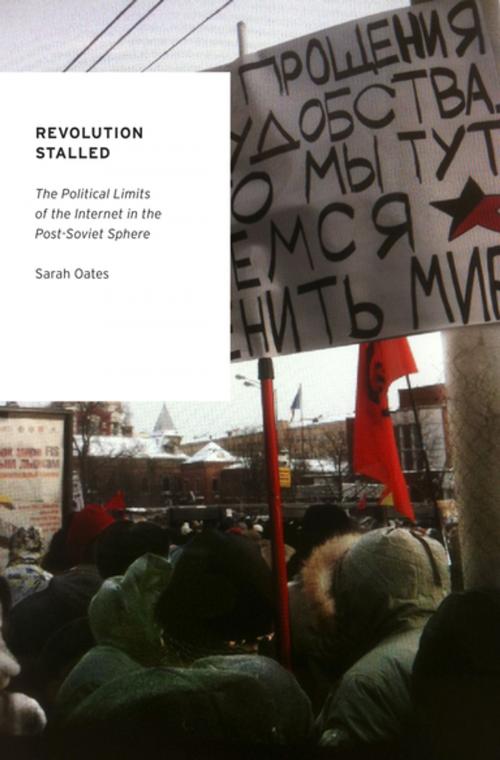Revolution Stalled
The Political Limits of the Internet in the Post-Soviet Sphere
Nonfiction, Social & Cultural Studies, Political Science, Politics, Practical Politics, Social Science| Author: | Sarah Oates | ISBN: | 9780199339907 |
| Publisher: | Oxford University Press | Publication: | May 2, 2013 |
| Imprint: | Oxford University Press | Language: | English |
| Author: | Sarah Oates |
| ISBN: | 9780199339907 |
| Publisher: | Oxford University Press |
| Publication: | May 2, 2013 |
| Imprint: | Oxford University Press |
| Language: | English |
Can the internet fundamentally challenge non-free regimes? The role that social networking has played in promoting political change in the Middle East and beyond raises important questions about the ability of authoritarian leaders to control the information sphere and their subjects. Revolution Stalled goes beyond the idea of "virtual" politics to study five key components in the relationship between the online sphere and society: content, community, catalysts, control, and co-optation. This analysis of the contemporary Russian internet, written by a scholar with in-depth knowledge of both the post-Soviet media and media theory, illuminates key components to how and when the internet can spark political action. With its analysis of current internet-linked protests in Russia, this book posits that there are critical pre-conditions that must exist for the internet to be used successfully to challenge non-free states. In particular, Russian leaders have made themselves vulnerable to online protest movements and online social entrepreneurs through their failure to control the internet as effectively as they have controlled traditional media. At the same time, Russia has experienced explosive growth in the online audience, tipping the balance of control away from state-run television and toward the more open online sphere. Oates incorporates studies of small-scale protests involving health issues and children with disabilities to demonstrate that Russians have started to translate individual grievances into rising political awareness and efficacy via the online sphere. Her cases show that the Russian state has struggled to change its information and control strategy in the face of new types of information dissemination, networking, and protest. This new environment has transformed a state strategy of co-opted elections into a powerful catalyst for protests and demands for rights. While the revolution remains stalled, this book provides compelling evidence that a new and changing generation of internet users is beginning to alter the balance of power in the public sphere in Russia.
Can the internet fundamentally challenge non-free regimes? The role that social networking has played in promoting political change in the Middle East and beyond raises important questions about the ability of authoritarian leaders to control the information sphere and their subjects. Revolution Stalled goes beyond the idea of "virtual" politics to study five key components in the relationship between the online sphere and society: content, community, catalysts, control, and co-optation. This analysis of the contemporary Russian internet, written by a scholar with in-depth knowledge of both the post-Soviet media and media theory, illuminates key components to how and when the internet can spark political action. With its analysis of current internet-linked protests in Russia, this book posits that there are critical pre-conditions that must exist for the internet to be used successfully to challenge non-free states. In particular, Russian leaders have made themselves vulnerable to online protest movements and online social entrepreneurs through their failure to control the internet as effectively as they have controlled traditional media. At the same time, Russia has experienced explosive growth in the online audience, tipping the balance of control away from state-run television and toward the more open online sphere. Oates incorporates studies of small-scale protests involving health issues and children with disabilities to demonstrate that Russians have started to translate individual grievances into rising political awareness and efficacy via the online sphere. Her cases show that the Russian state has struggled to change its information and control strategy in the face of new types of information dissemination, networking, and protest. This new environment has transformed a state strategy of co-opted elections into a powerful catalyst for protests and demands for rights. While the revolution remains stalled, this book provides compelling evidence that a new and changing generation of internet users is beginning to alter the balance of power in the public sphere in Russia.















